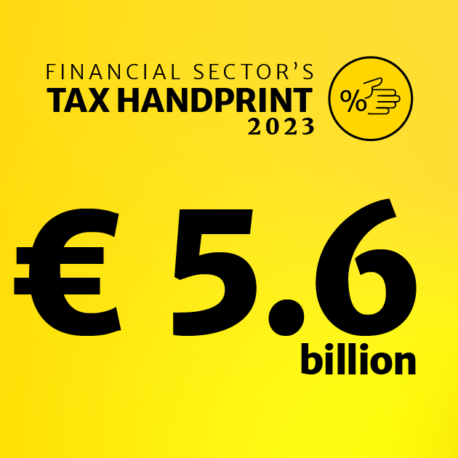
Value added tax (VAT) is a consumption tax levied on nearly all products and services. In practice, VAT is added to the price of a product or service and paid by the consumer. Financing and insurance services in the EU have been exempted from VAT due to the difficulty of defining their tax base.
The current VAT directive is in need of an overhaul. The outdated definitions used in the directive no longer reflect the current state of the financial sector and must be updated to match the modern operating environment.
VAT interpretations have become increasingly fragmented due to variation in case-by-case interpretation of VAT rules for example in the EU General Court. The cost-sharing systems of cross-border groups are especially problematic.
At the same time, new companies have entered the market with similar services and products as financial sector companies. The only difference is that their VAT treatment differs from the treatment of the products provided by more traditional operators. This distorts competition.
======
We need a solution that works well for
the sector, its customers and the tax authorities
without causing unreasonable additional costs.
======
Financial sector companies’ VAT exemption also means they cannot deduct the VAT they pay for the products and services they purchase. This non-deductible VAT is a significant expense for the sector and increases the prices of products and services especially for corporate customers. In 2023, Finance Finland estimated the hidden VAT burden of Finnish financial sector companies to be at least €485 million.
It is clear that the financial sector’s VAT rules must be revised. But this is no easy feat.
Over the past decades, the sector’s VAT treatment has been reviewed several times. Some of the review rounds have led to proposals, but these have fallen at the starting line. The considerable difficulty of determining the sector’s tax base and the widely varying views of member states have tripped proposal after proposal.
It would now be paramount to finally reach a solution that works well for the sector, its customers and the tax authorities without causing unreasonable additional costs.
======
The study should lead to a more uniform and clear VAT treatment of
financial and insurance services across the EU.
======
In late summer 2024, the European Commission launched another study on the tax treatment of the financial sector. The study is focused on VAT but also covers other sector-specific taxes in the financial sector.
The objective of the study is to evaluate the financial and insurance sector’s current VAT system and the related regulatory and tax environment. It also aims to identify and assess the potential impacts of new EU initiatives on the sector. The study is to be completed by the end of 2025, and the Commission will also most likely launch a public call for opinions on the matter.
The study should lead to a more uniform and clear VAT treatment of financial and insurance services across the EU. Whether the project takes off remains to be seen.
When considering VAT, it is important to take into account the differences between different kinds of operators: banks are in a different situation from insurers and asset managers, and earnings-related pension providers, in particular, form an entirely unique entity.
It is essential to safeguard the position of Finnish pension insurance companies. For them, VAT liability would mean massive additional costs that would directly impact the cost of Finnish labour and decrease accrued pensions. Being subject to VAT would undermine pension insurers’ existing operating principles.
The Finnish pension system is unique among the other European pension systems. The most striking difference springs from the fact that in Finland, private sector pension insurance provision is the responsibility of private pension insurance companies. These companies manage statutory pension insurance, which covers old age and disability as well as the death of a breadwinner.
======
For pension insurers, VAT liability would mean massive
additional costs that would directly impact the cost of
Finnish labour and decrease accrued pensions.
======
The Finnish pension system is extensive in scope and importance and has significant impact on society as a whole in terms of purchasing power, employment, growth and tax burden, for example. Questions of its taxation are therefore very difficult to solve.
For this reason, Finnish pension insurance companies should be excluded from the upcoming regulation from the very start. Once their position has been secured, we can start examining potential VAT amendments in the banking, insurance and asset management sectors from an entirely different viewpoint.
It is important that the Finnish pension system and the financial sector as a whole are not endangered with additional tax burden. Any future changes must be genuine improvements, not merely new taxes.
The Commission has placed strengthening competitiveness at the heart of its economic agenda for the current EU term, but increasing the financial sector’s tax burden would directly contradict this objective.
Looking for more?
Other articles on the topic

Financial sector’s VAT treatment needs an overhaul, but the Finnish pension system must not be hampered with added tax burden

The Nordic financial sector calls for harmonised implementation of the FASTER Directive

Income taxes paid by financial sector companies grew to €1.3 billion in 2023, and the sector’s total tax handprint of €5.6 billion would cover Finland’s military expenditure – OP Financial Group and Nordea the two largest taxpayers in Finland

Finance Finland proposes ways to increase economic growth and tax revenue: Finnish law must provide for retail ELTIFs


